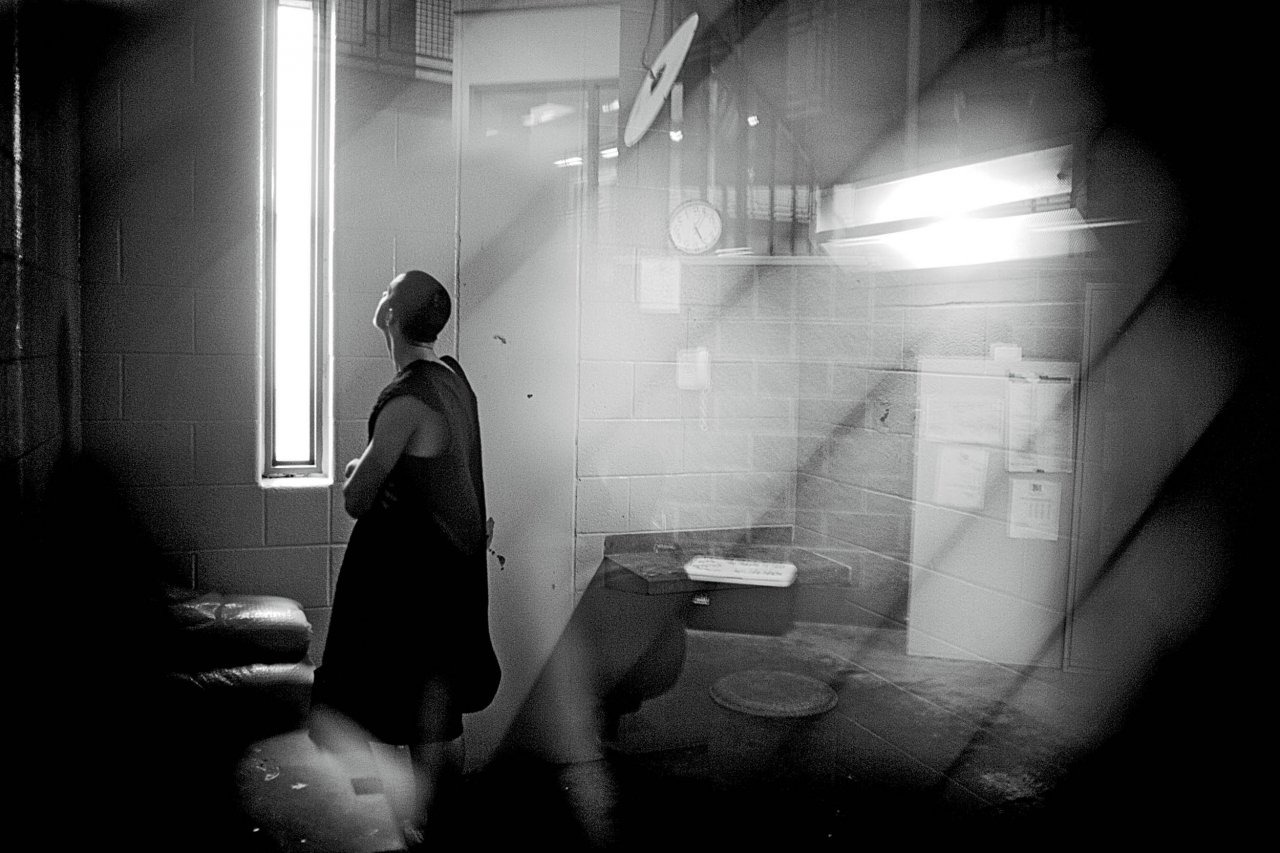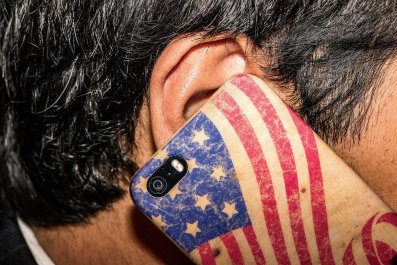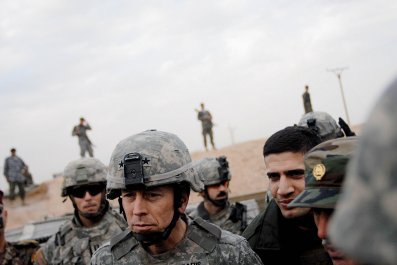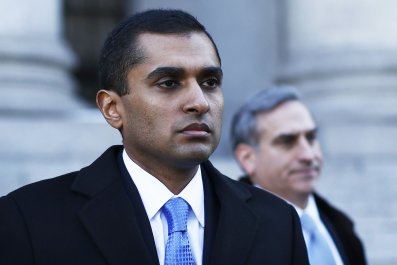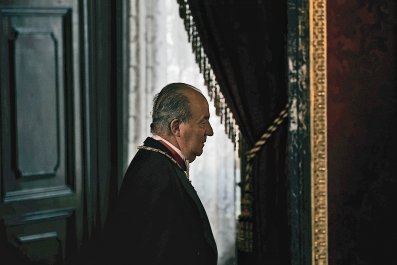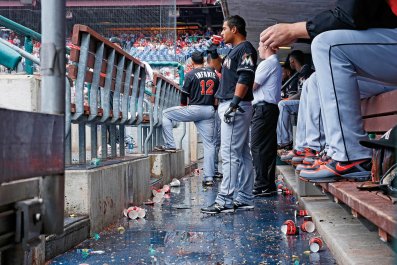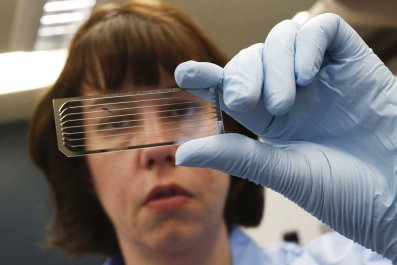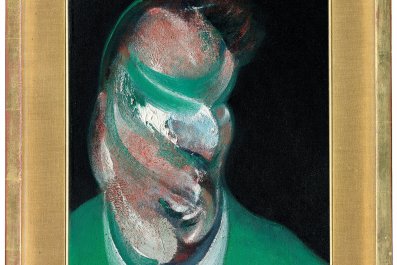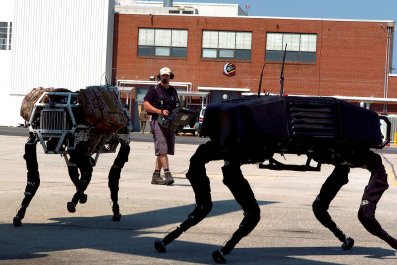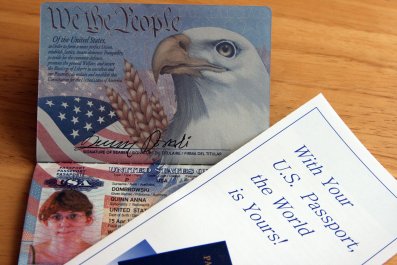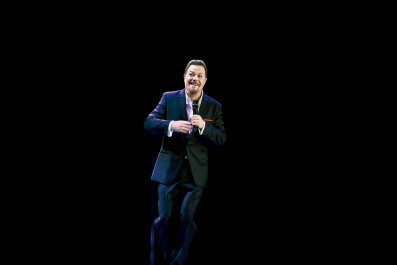Money can't buy love, they say, but it can buy health, and isn't the rest pretty much secondary? There are some drug regimens, mostly for cancers and rare immune or metabolic disorders, that cost $100,000 a year; a few of the most expensive can cost three or four times that much. The average American family earns about $51,000 per year, which makes it unlikely that Johnny Q. Taxpayer will shell out $2,500 for the kind of thorough full-body scan that can catch an ailment in its earliest stages and is a common luxury for executive types. He probably won't get laser eye surgery ($4,000), either.
But madness—serious mental illnesses like bipolar disorder and schizophrenia—at least partly eludes the easy correlation between class and health. The qualification partly is necessary, for poverty can exacerbate (and maybe even bring about) ravages of the mind. So, however, can wealth.
The notion is new, since for so much of human history, wealth conferred a moral superiority on those who possessed it. We know better now. Suniya S. Luthar, a psychopathologist who studies affluent youth, has conducted research that suggests wealth may be as psychologically damaging as poverty. "Education and money may once have served as buffers against distress," she recently wrote in Psychology Today, "but that is no longer the case." According to Luthar, "The high rate of maladjustment among affluent adolescents" results from "a relentless sense of pressure" to achieve.
And in December, "affluenza" entered the popular lexicon after a Texas teenager named Ethan Couch received light-as-feathers punishment (10 years on probation) for killing four people while driving drunkenly—and 30 miles over the speed limit—in his father's pickup truck. A psychologist summoned by Couch's lawyers argued that because he had grown up in luxury (his father runs a Fort Worth–area sheet metal business), the 16-year-old had been sheltered from the world of consequences where we plebes reside. That wealth may have supplied Couch with a delusive sense of omnipotence is an argument that recalls The Golden Ghetto, Jessie H. O'Neill's 1997 book that introduced the term affluenza. (Luthar was among those who denounced Couch's sentence as too lenient.)
The relationship between wealth and mental illness is explored with equanimity and insight in two recent works: The Looking Glass Brother (memoir) and Gabriel (movie). Both feature troubled young men wandering much the same Manhattan streets as a "sort of disappearing" Holden Caulfield did 60 years ago. They are psychotic, and their plight shows that even money has limits when it comes to mental health, that all those dollars sometimes prove effete in comparison to the brain's intractable mysteries. Sanity may be the other thing immune to purchasing power.
"Psychosis is a great leveler," says Michael Greenberg, who wrote about his daughter's psychotic breakdown with acute poignancy in his 2008 memoir, Hurry Down Sunshine. "Your wealth," he told me, "means nothing."
The Looking Glass Brother, first published last year and out in paperback this month, is about two stepbrothers named Peter von Ziegesar. One of them, Little Peter, was a gifted young violinist, "the next Paganini." The other, Big Peter, was "a fog, made of air and moisture" who withered in the face of his patrician father, a bookish boy obviously not destined for glory beneath the goalposts of the Yale Bowl. Today, Little Peter lives under a bridge in Colorado Springs, Colorado, while Big Peter has a big, happy family in New York. The Looking Glass Brother is about how the two got where they are.
Schizophrenia supplies the answer. Diagnosed as a teen, Little Peter dropped out of the University of Vermont to become "a drooling specimen of New York City's homeless," as the older Peter writes. It didn't have to be that way: These were bluebloods with a waterfront Long Island estate (Peacock Point), kids in the right schools, friends in the right places. Then again, if brain chemistry is fate, what other way could it have been? Big Peter marries a Korean woman, and borrows a term from his mother-in-law to describe Little Peter: mujung yohang, which means something like "traveling with nothing in your pocket." Big Peter manages to paint his younger stepbrother as an immensely frustrating creature worthy of immense compassion.
Greenberg's Hurry Down Sunshine takes place in much the same scruffy, pre-Bloomberg Manhattan traversed by the two Peters. The harrowing story begins with Greenberg's daughter cracking up on a Fourth of July weekend; it ends, eons of suffering later, with the beginning of school in September, though a postscript indicates that Sally Greenberg (her real name, which she asked her father to use) doesn't attain the psychological calm promised by drugs and therapy. In the course of that summer's treatment, her relentlessly perspicacious father writes, "It's easy to imagine how dispiriting it must be to administer a series of unrewarding treatments that have not progressed much since Lady Macbeth's doctor observed: 'This disease is beyond my practice.'"
Gabriel, the first feature-length movie from the young director Lou Howe, is not principally set in New York, though its protagonist ends up on Manhattan's streets, as if they exert some lunar pull on the unquiet mind. The film, which stars Rory Culkin, was among the most well-received entries in the recently concluded Tribeca Film Festival. It begins with a winsome young man on a bus, entertaining a girl with Twizzlers fashioned into a cigarette. By the time he arrives at his family's comfortable Hudson River Valley home, a dark truth has emerged: Gabriel has just been released from a mental institution. He may have been released too soon.
Under Howe's exacting lens, Gabriel quickly comes undone. His spacious house, his doting mother, these are all noisome nothings to his fervidly suspicious mind. Gabriel's evasions are childish yet effective: When his mom forces him to take his pills, he simply vomits them out. Confined to his room, he escapes through a window. He can, if need be, play the role of the polite son of privilege, but his madness eventually breaks through. His logic, though, is painfully irrefutable: "You can't just lock me up," he says shortly before heading to Shelter Island, in hopeless search of a girl who will never be his wife.
Howe says he wrote the movie after witnessing a friend undergo a psychotic breakdown. He acknowledges that Gabriel has "as many resources as one could hope for. And still," Howe says, "there's this inherent impossibility to solving the problem"
Kathlene Tracy, a psychologist at New York University who runs a community outreach program for the mentally ill, told me that Gabriel was the first movie she'd seen in a long time that accurately described the experience of mental illness, both for the patient and those around him or her. Tracy works with a population that comes off the streets; some of her patients have a background similar to Gabriel's. She explains that wealthy people in the early stages of mental illness are sometimes treated like eccentrics until those quirks manifest themselves as symptoms of something less charming, more malignant. They are often shunned as a result.
Arthur Radin knows all about the difficulty of seeing a family member succumb to madness. A successful accountant, Radin raised his three children in Brooklyn Heights. His son David went to the prestigious St. Ann's School, maybe New York City's best. He got into Columbia. Everything seemed fine, Radin says. But two weeks into school, in the fall of 1986, David had a psychotic episode, the first manifestation of schizophrenia. Instead of trying to procure beers at the West End, he wound up in the hospital.
Radin, who was recently profiled in The Wall Street Journal for his philanthropic contributions to research on mental illness, recalls the stigma attached to his son's diagnosis. "At the time, I was deeply ashamed. How do you go to all your friends, to whom you've been bragging about your fine son who got into Columbia and Stanford, and say, 'Oh, no, he's locked in a room 'cause he can't deal with it'?"
Others point out that while money can't cure mental illness, it can ameliorate its effects. "Mental illness seems to respond best to a mix of psychopharmacology and talk therapy, but only rich people can afford to do both," says Andrew Solomon, who wrote about his own depression in The Noonday Demon. "People whose illness is worse than mine who have means can spend a year at MacLean," he told me in an email, alluding to the high-end hospital in Boston. "People whose illness is worse than mine and who have no money will bounce in and out of hospital stays that are always too short."
Spoiler alert: At the conclusion of Gabriel, it looks as if the film's hero is about to bounce right back into an institution. Little Peter, of The Looking Glass Brother, seems to be in a better place, even if that place is a bridge support shared by other vagrants. As Big Peter makes clear numerous times, things could have been much worse, with death or incarceration haunting his daily movements. If these dangers have receded, I suspect it has less to do with the thousands of dollars wasted on psychiatrists than with an older brother's diligent care. Some of the book's most affecting moments come when the two Peters are in some Chinatown greasy spoon, talking like two men who can't say everything but need to say something. In the Bible, Cain is wrong: We are, sometimes, our brother's keeper.
I recently went to Peter von Ziegesar's house for a Buddhist ceremony that involved the burning of a draft copy of The Looking Glass Brother, as a form of release that also commemorated the book's paperback issue. His house, on one of the best blocks in the Fort Greene section of Brooklyn, is tastefully chaotic, in the quintessential patrician manner. Guests gathered around the fireplace as von Ziegesar tossed in pages of his book. His three children egged him on, as did his guests, some of whom were drunk on martinis that von Ziegesar had mixed in the kitchen. Little Peter wasn't there, but he wasn't exactly absent, either.



